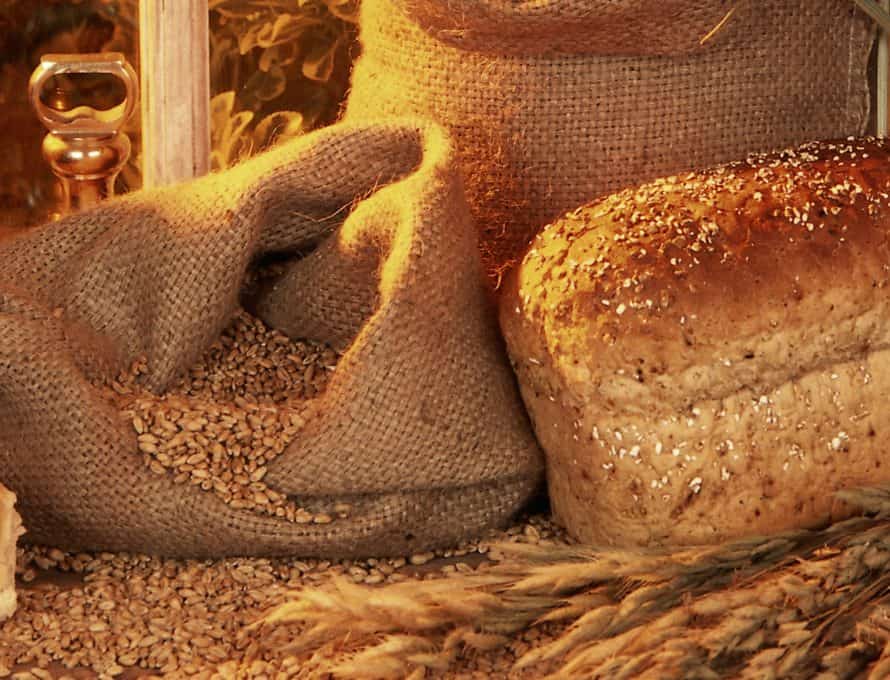In the Lord’s Prayer we are told to pray for our daily bread (Matt 6:11). This prayer is a model of what it means to trust and ask God to meet our needs, our physical and spiritual needs, by asking God to provide our most basic need, the need to eat. But how does God normally give us our daily bread? None of us got up this morning, went outside, and collected the daily bread that God deposited on our doorstep while we were sleeping. We either went to the refrigerator or drove somewhere to get breakfast. We did this because God provides our daily bread through other people, such as farmers, bakers, truck drivers, grocery store owners, and everyone else who is involved in getting us our meals. Though God could, if he so chose, give us our food directly and miraculously (as he did for Israel when he fed them with manna and quail), he normally provides us our food through other human beings, who serve each other according to their unique opportunities and abilities. This is the doctrine of vocation, or what God does in giving each human being unique callings in this world.
Another example that helps us grasp this idea has to do with our families. If God chose to do so, he could have directly created each one of us from the dust of the ground. Instead, God chose to involve us. He chose to use the vocations of husbands, wives, fathers and mothers to create people in his image. Not only do we have callings in the workplace that allow us to serve our fellow human beings, we have callings in the family in which we are to serve our fellow human beings. Parents are called to love and serve their children, while children are called to love and serve their parents, each according to their unique vocation. God uses us, through our vocations, to bless and love others.
The term “vocation” comes from the Latin word for calling. The Bible speaks of us being called to salvation through the gospel, as for example in 2 Thess. 2:14 (cf. Rom 8:28-30; 1 Thess. 2:13-14), but it also speaks of being called to a particular way of life, such as marriage or singleness (1 Cor. 7:15-20), or being an apostle (1 Cor. 1:1). All people, believers and unbelievers, are called to be in families, called to live under governing authorities as citizens of a particular place (Rom. 13:1-7), and called to serve others with their unique gifts and abilities, whether in the home or in the workplace. Only believers in Jesus Christ, however, are called through the gospel and called to be in the church, the people of God (1 Pet. 2:9-10). Therefore all of us have multiple callings in our lives: as citizens, as family members, as workers, and for Christians, as church members.
God’s purpose in our multiple vocations is for us to honor him by fulfilling our callings with love among the people he has put in our lives. I am supposed to serve you with my gifts through my vocations, and you are supposed to serve me with your gifts through your vocations, all to the glory of God. When this is happening, everyone is constantly giving and receiving love. I didn’t plant, harvest or transport the banana I had for breakfast; others did this on my behalf, even if they didn’t do so consciously. In exchange, I pastor, preach, teach and write. Even though it flies in the face of our individualistic mindsets, we are dependent upon others to serve us by fulfilling their vocations, and others are dependent upon us as well.
Behind all of these vocations is God, who works through both believers and unbelievers to shower those made in his image with his service and love. The only difference is that believers are supposed to purposely live out their vocations through faith, to the glory of God. Either way, God is the one working to show his love to children through parents, to show his love to believers through pastors and fellow church members, to show his love and justice to his people through governing authorities, and to show his providential care to all by continually giving us our daily bread through dozens of different vocations. One of the primary ways we love others as Jesus Christ has loved us is by faithfully carrying out every vocation God has given us. Whether God has called and gifted you to be a carpenter, a small business owner, a pastor, a father, a mother, a husband, a wife, a Sunday school teacher, a deacon or one of a thousand other vocations, he has done so to bless you and bless others through you, all to his glory and praise. (Gary L. Shultz, Jr., Ph. D., is the senior pastor at First Baptist Church, Fulton.)

